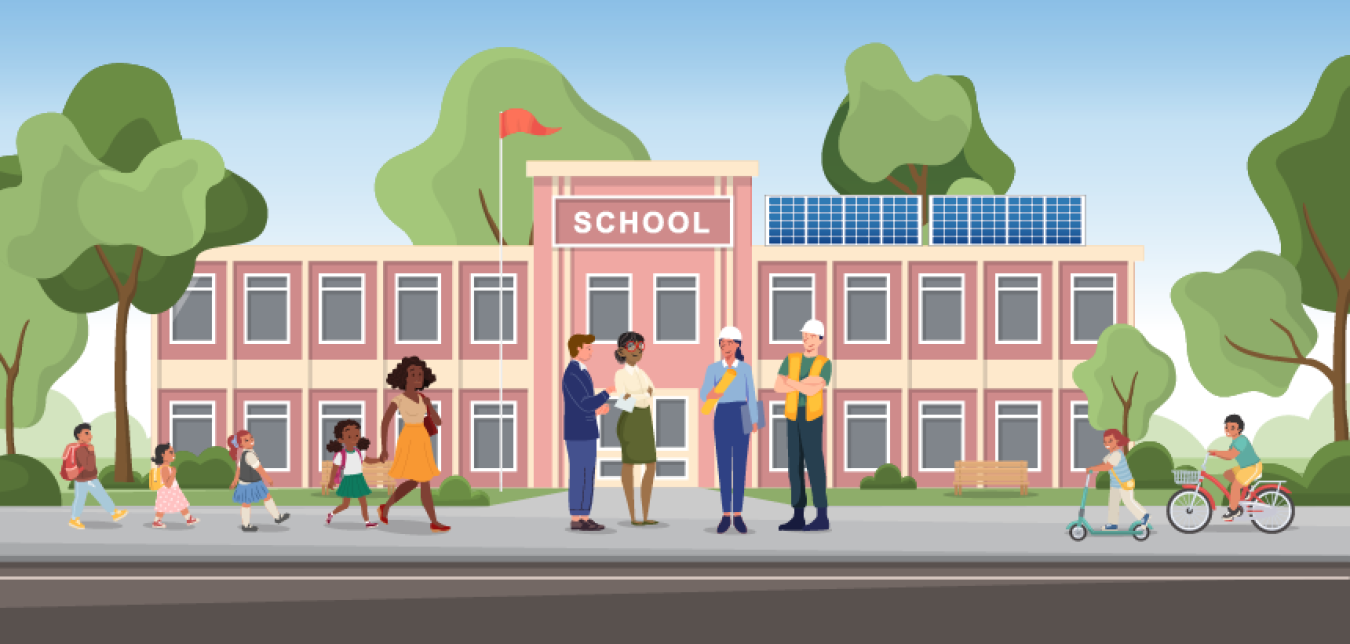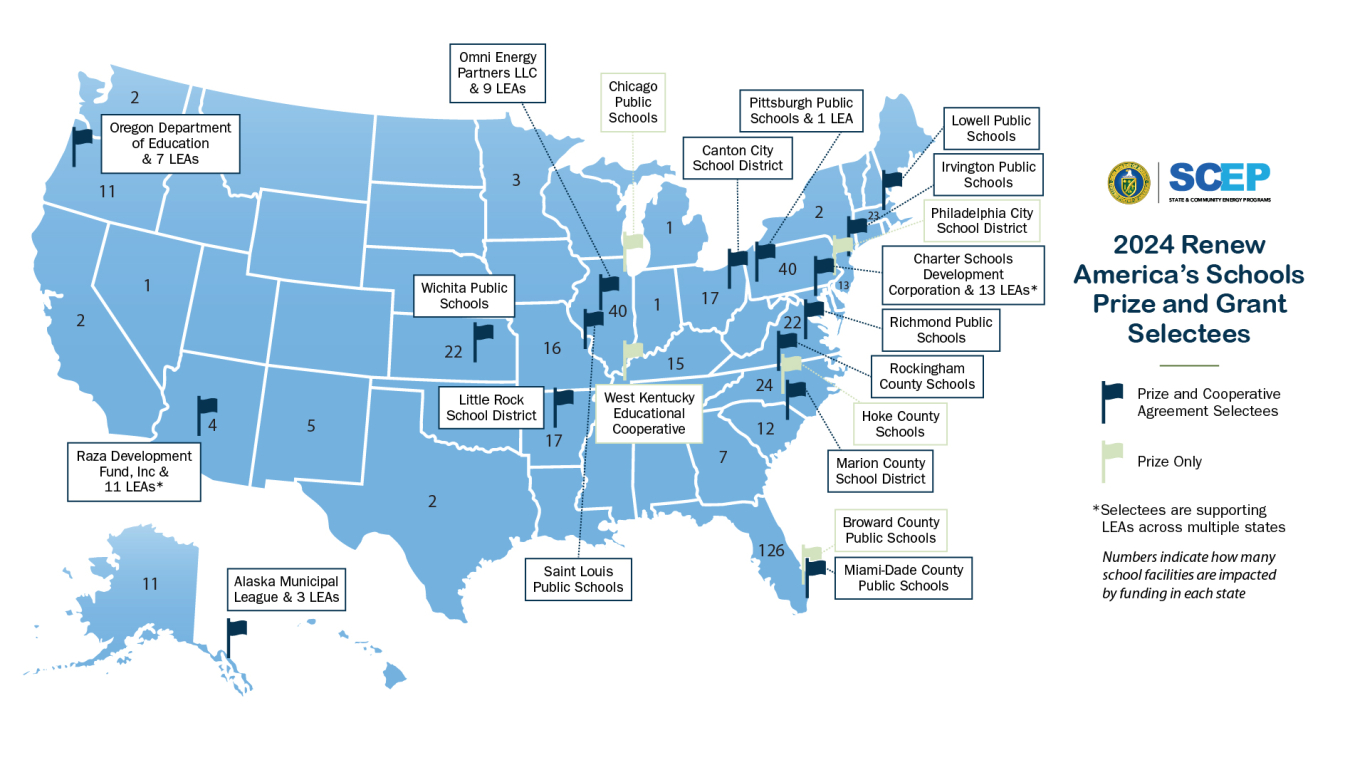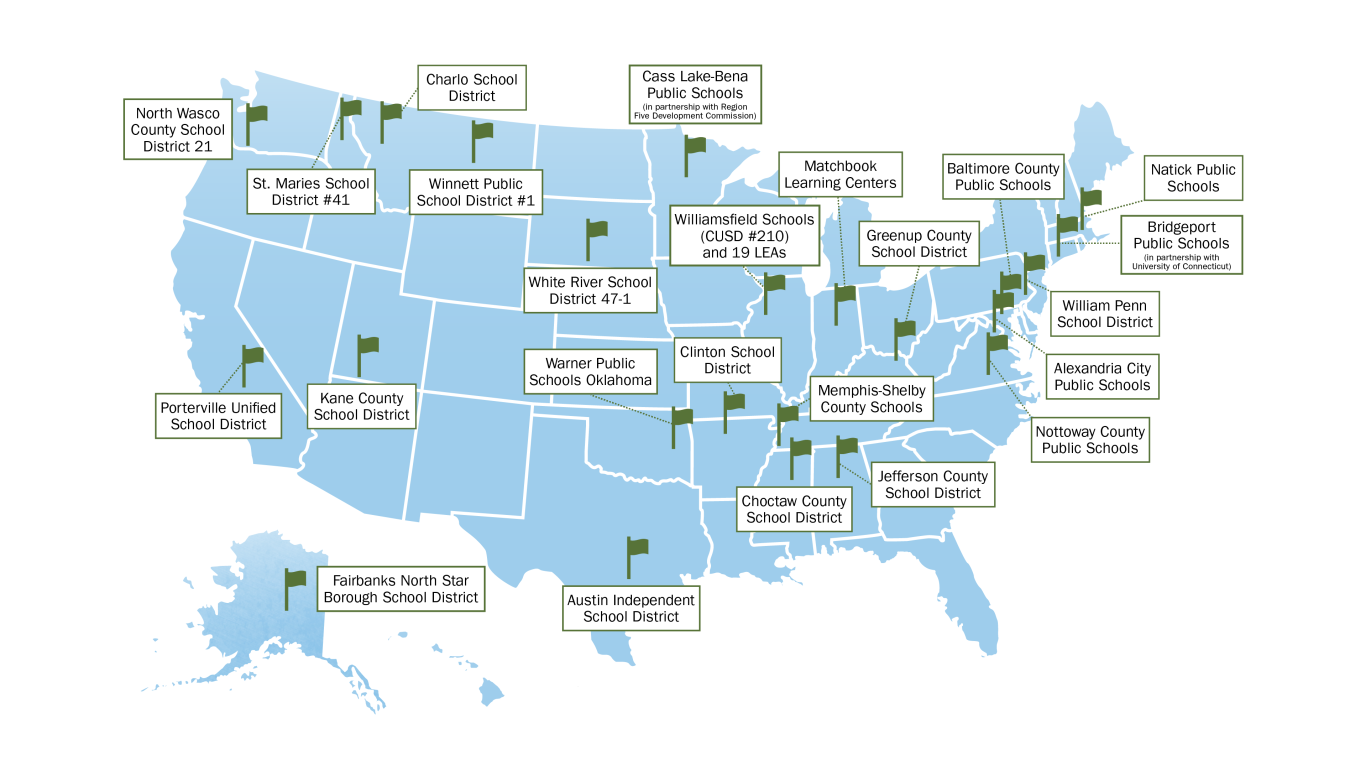
The U.S. Department of Energy (DOE) launched the $500 million Renew America’s Schools Program to promote the implementation of energy improvements at K-12 public schools across the country. This first-of-its-kind investment aims to help school communities make energy upgrades that will decrease energy use and costs, improve indoor air quality, and foster healthier learning environments.
The Renew America’s Schools Program released its first round of funding in 2022 with the Renew America’s Schools Grant. In August of 2024, selectees for the second round of funding, the 2024 Renew America’s Schools Prize and Grant selectees were announced. To date, the Renew America’s Schools Program has invested $372.5 million in public school districts across America, supporting capacity-building initiatives for energy management at over two dozen Local Educational Agencies (LEAs), and funding improvement projects at approximately 410 facilities across 36 states - directly benefitting approximately 197,000 students and 14,000 teachers.
Questions?
Contact us at schools@doe.gov.
Subscribe for more information about the Renew America's Schools Program.
Learn About Our Past Competitions
2024 Renew America's Schools Prize and Grant

Visit the 2024 Renew America's Prize and Grant page to learn more about selectees and their projects.
2022-2023 Renew America's Schools Grant
Visit the 2022-2023 Renew America's Grant page to learn more about selectees and their projects.
Funding Provision 40541
Office:
State and Community Energy Programs (SCEP)
New Program:
Yes
Funding amount:
$500,000,000
Funding Mechanism:
Grant
Recipients:
Consortium of One Local Education Agency and one or more Schools, Non-Profits, For-Profits, and Community Partners
Period of Availability:
Available until expended


